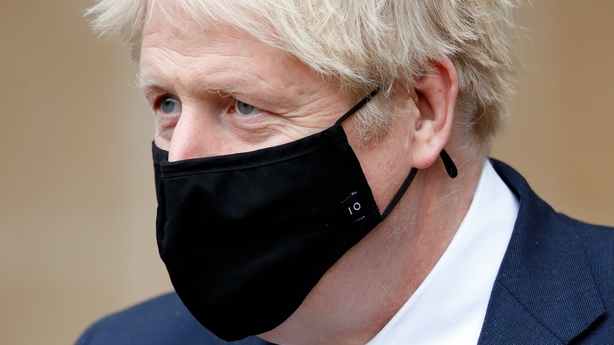Scotland's toughest coronavirus restrictions are to be imposed on 11 local authority areas from Friday, with First Minister Nicola Sturgeon saying their move to Level 4 will help to protect the health service and could give people the chance of some respite at Christmas.
The move means non-essential shops, bars and restaurants will have to close - though takeaways will be permitted - along with visitor attractions, hairdressers and gyms.
Ms Sturgeon has announced the Level 4 restrictions will be imposed in Glasgow, Renfrewshire, East Renfrewshire, East Dunbartonshire, West Dunbartonshire, North Lanarkshire, South Lanarkshire, East Ayrshire, South Ayrshire, Stirling and West Lothian.
The measures, which come into force from 6pm on Friday, will run until 11 December.
They will take effect at the same time as a ban on people in Level 3 and Level 4 areas travelling outside of their council boundaries for non-essential purpose comes into law.
Ms Sturgeon said the move to Level 4 is "necessary to ensure that the NHS (National Health Service) can cope with the range of pressures it will face over the winter".
She added: "These decisions will give us the best possible chance - albeit in a limited and careful way - of being able to ease restrictions in all parts of Scotland for Christmas."
It comes as Scotland recorded 37 deaths from coronavirus and 1,248 positive cases in the past 24 hours.
In the seven days up to Friday 13 November, cases across Scotland were recorded at the rate of 140 new infections per 100,000 people.
Ms Sturgeon said the 11 areas moving to Level 4 all had a higher rate than that, ranging from West Lothian at 158 cases per 100,000 to Glasgow at 277.
Infection levels in these areas remain "stubbornly and worryingly high", she said.
While 11 council areas will move into Level 4, Ms Sturgeon announced two - Midlothian and East Lothian - will have restrictions eased as they move from Level 3 to Level 2.
The remaining 19 council areas will not change level.
British govt to decide on England's lockdown measures next week
The British government will decide next week how to end the current lockdown in England as scientists warned a tougher tier system is needed until vaccines can drive back the Covid-19 pandemic.
Communities Secretary Robert Jenrick said ministers want to see a "significant easing" of coronavirus controls when the measures are lifted on 2 December, but suggested tighter controls may be needed in the top Tier 3.
It comes after Susan Hopkins, medical director of Public Health England and chief medical adviser to NHS Test and Trace, said ministers would have to look at "strengthening" the tier system.
Tier 1 restrictions that covered huge parts of England had "very little effect", she said, adding that even Tier 2 only worked in some areas.
Documents released last week from the Scientific Pandemic Influenza Group on Modelling (SPI-M), which reports to the Scientific Advisory Committee for Emergencies (Sage), said there was a "clear effect" on infection rates from strict Tier 3 interventions but "much less from Tiers 1 and 2".
SPI-M believe infections will rise at the same rate as before if the same three-tier system is brought back in on 2 December.
In a round of broadcast interviews, Mr Jenrick said any extension of the current lockdown would require a vote of parliament.
"It is our hope and expectation that that won't be the case and that people in England will be able to move back into the tiered system," he told Sky News.
"There will be a review. That work is undergoing on what those tiers look like and how local areas go back in but that will very much depend on the data.
"We will have to make decisions nearer the end of the month once we have got the most up-to-date information possible.
"But we all want to see a significant easing of the measures in all parts of England at the beginning of next month."
However, Mr Jenrick told BBC Breakfast the government will be looking at whether to "embed" the additional measures previously available to local areas placed under Tier 3.
Asked if there could be a tougher tier than Tier 3 in the new system, he said: "We haven't come to a decision on that.
"The Tier 3 that we had before was just considered a baseline.
"And then we did ask local areas whether they would be willing to go further and some did.

Elsewhere British Prime Minister Boris Johnson has tested negative for coronavirus but will remain in self-isolation, Downing Street said.
He took a rapid turnaround lateral flow test as part of a pilot scheme for Downing Street staff.

